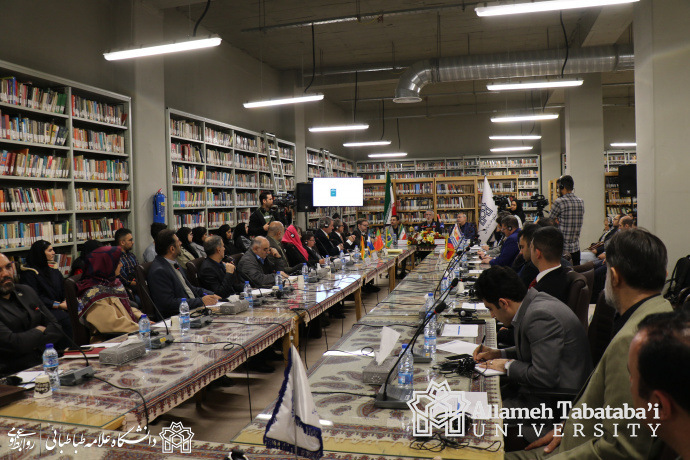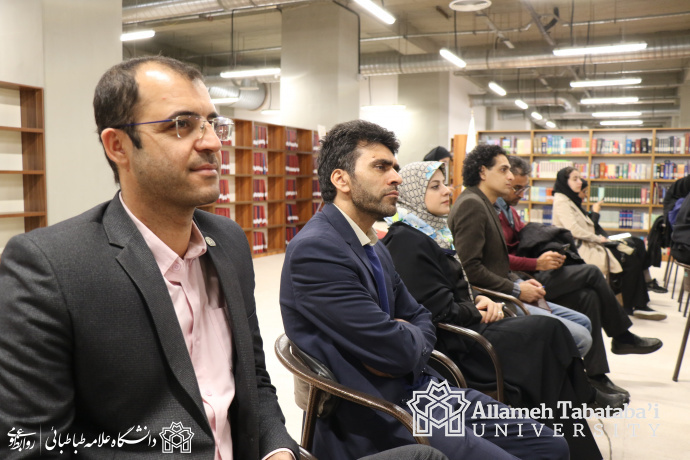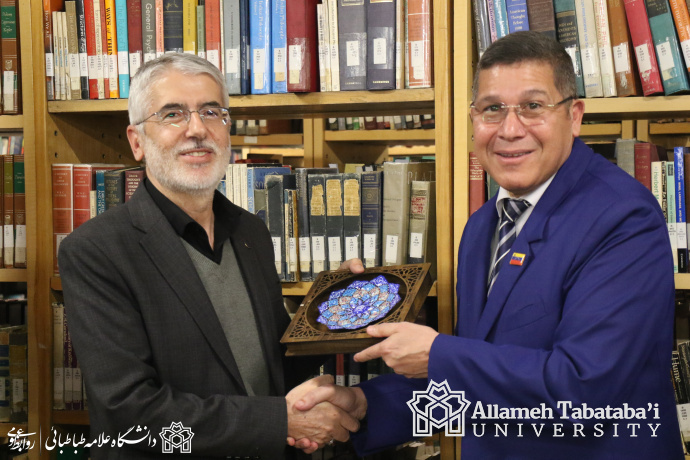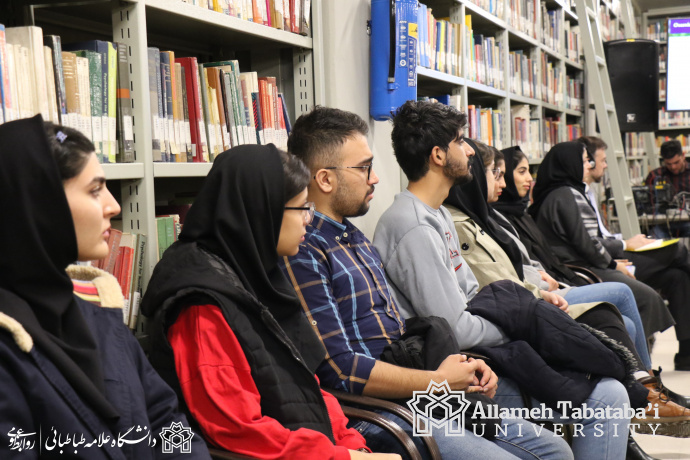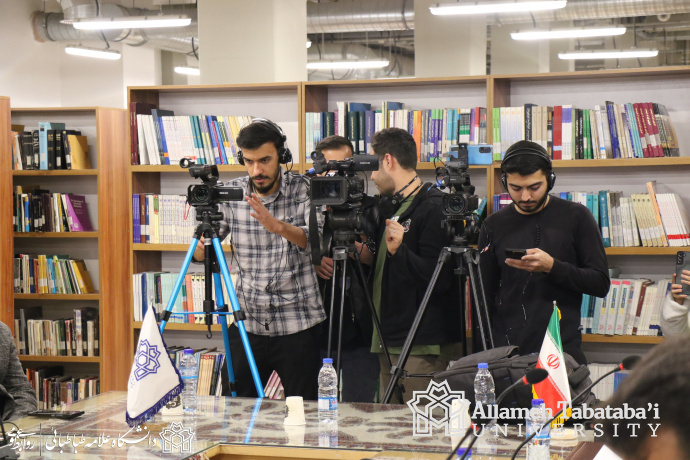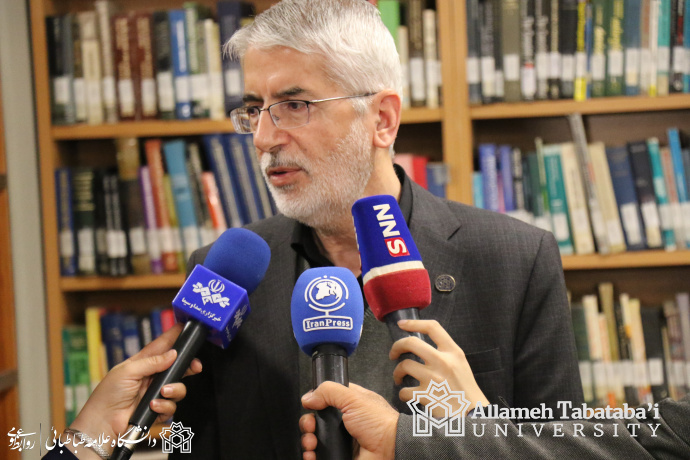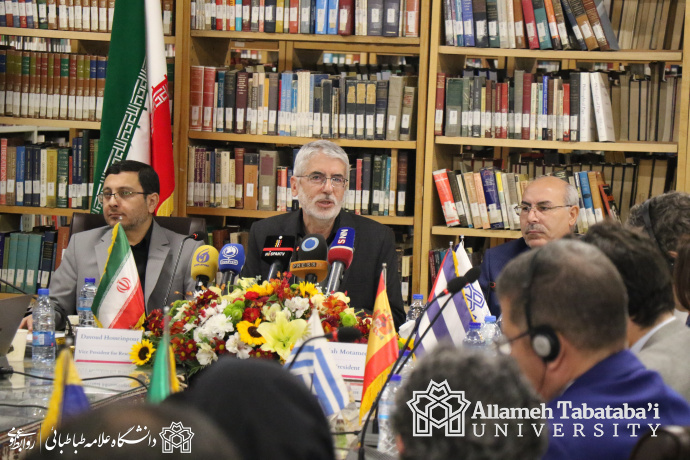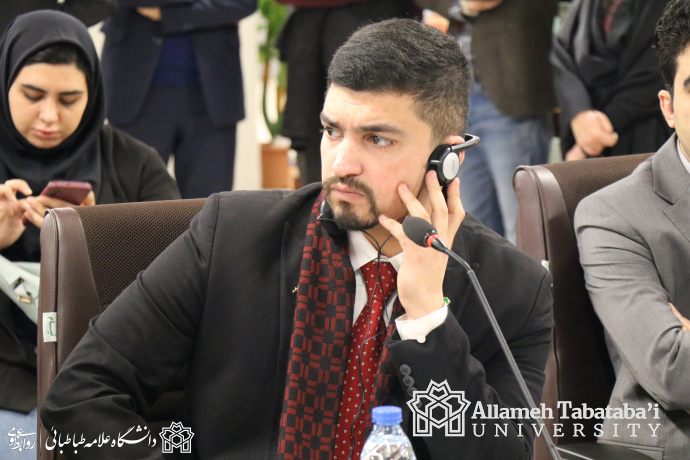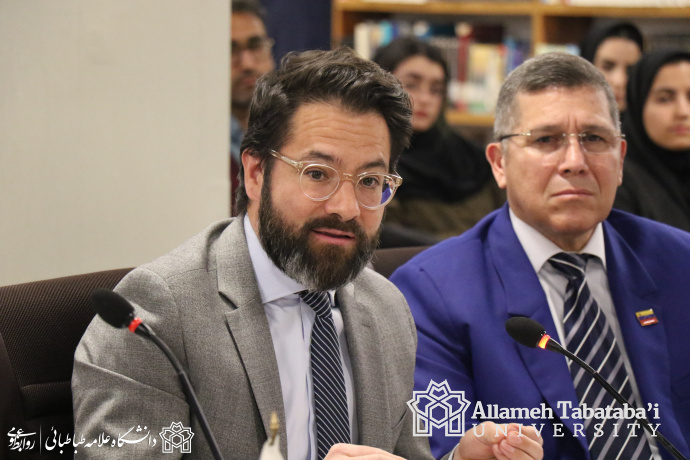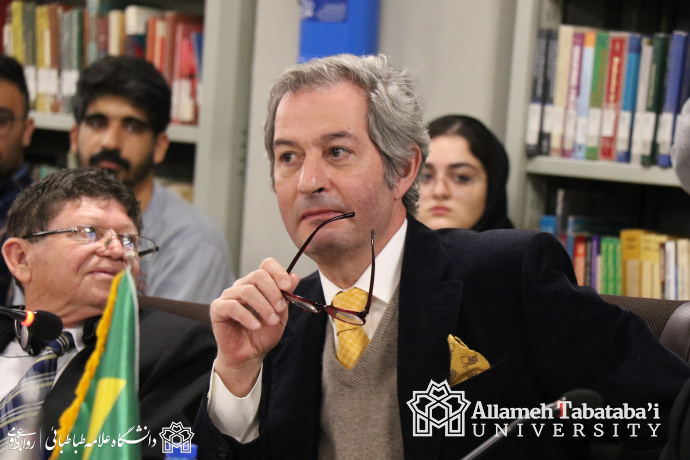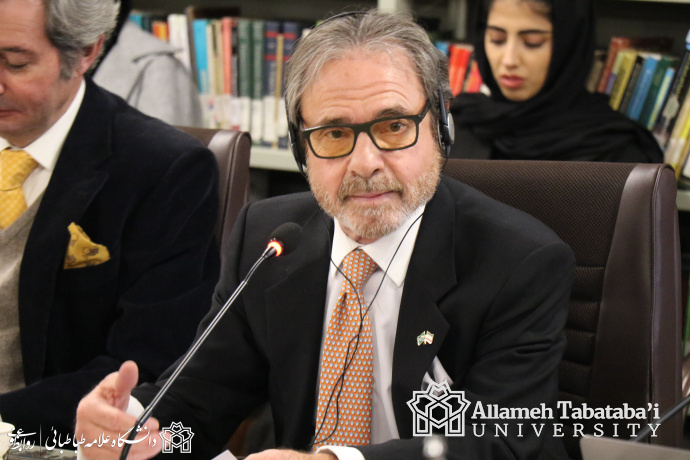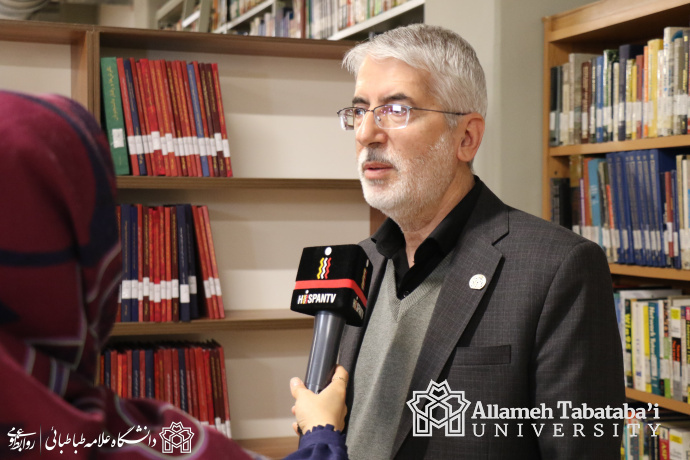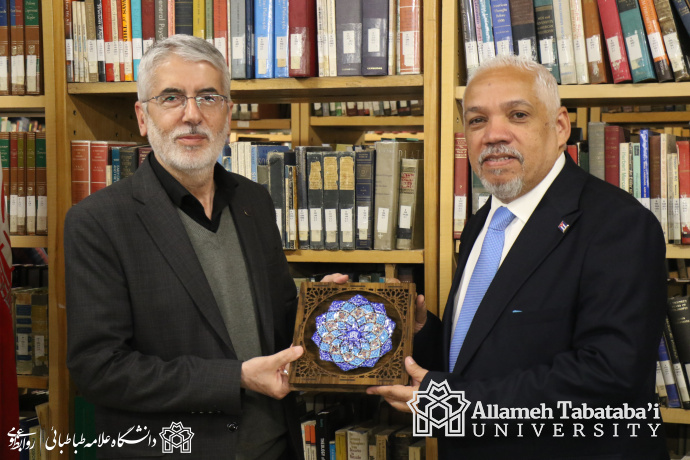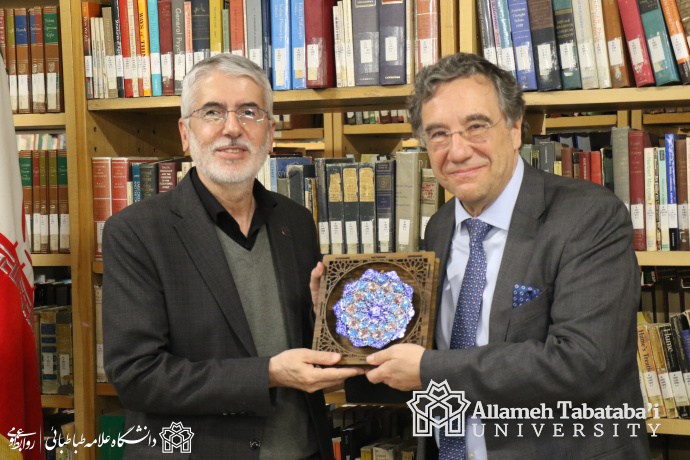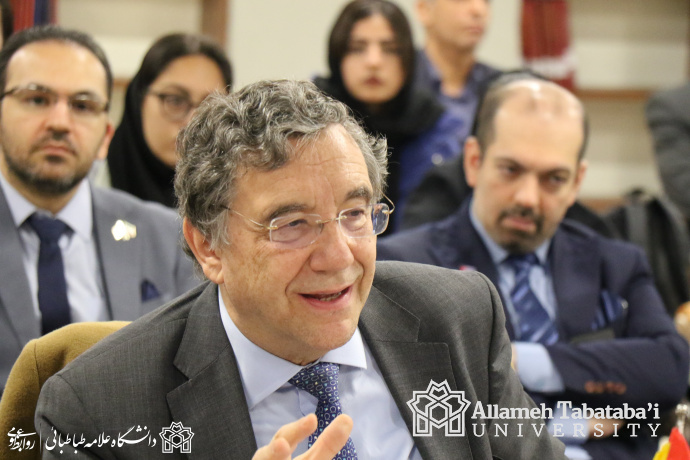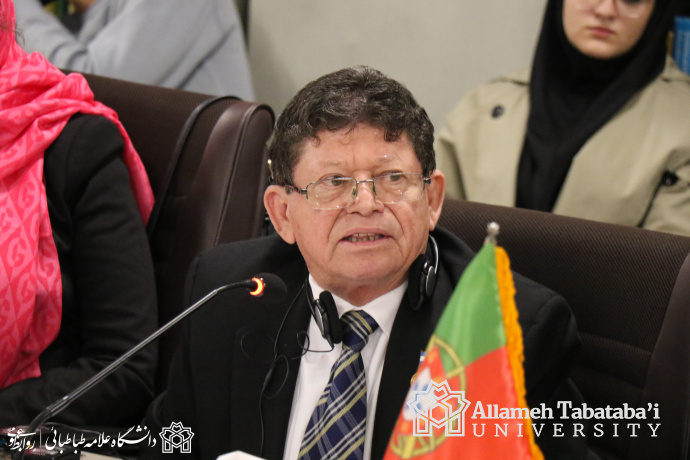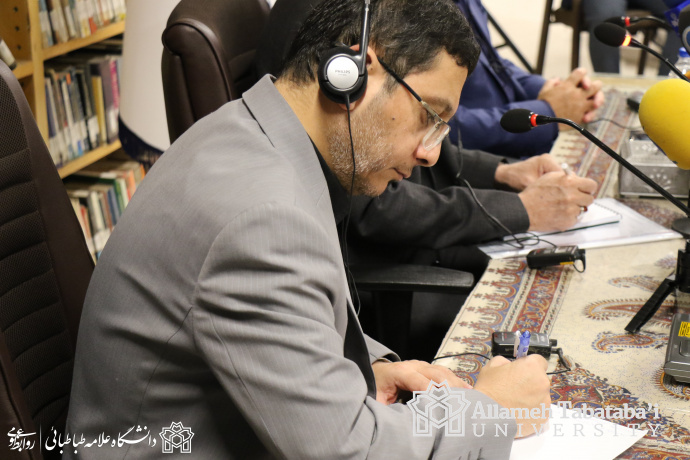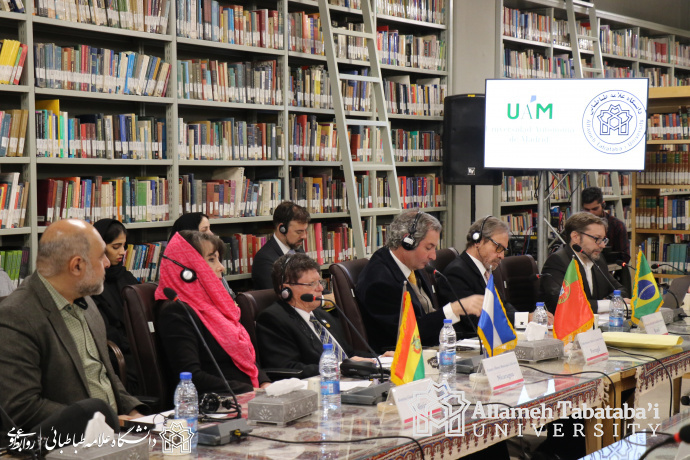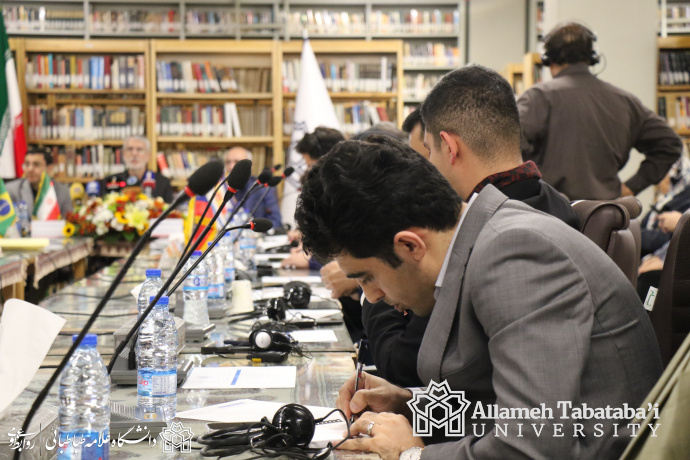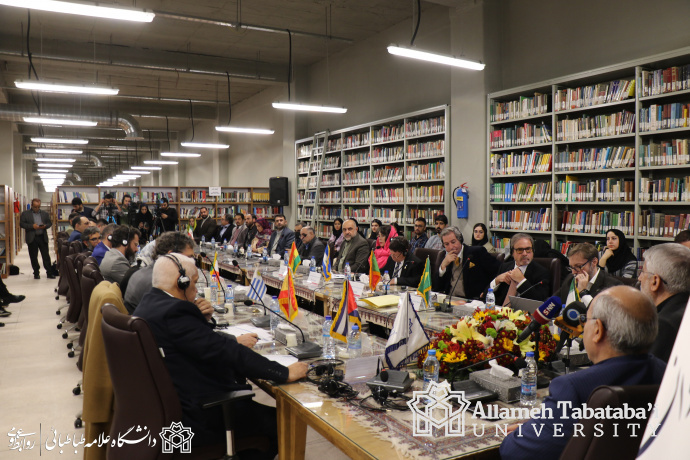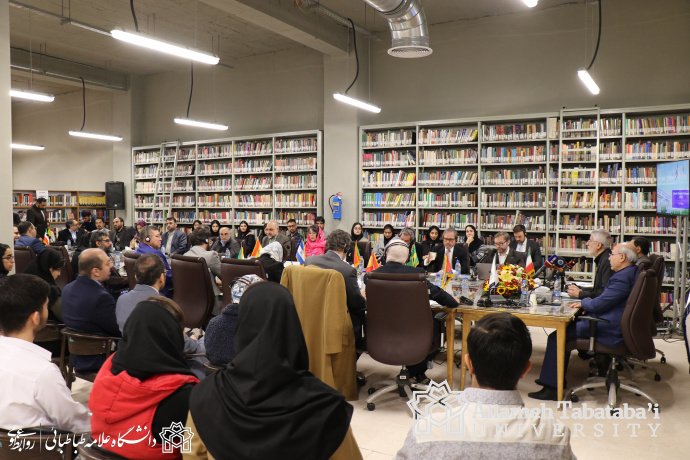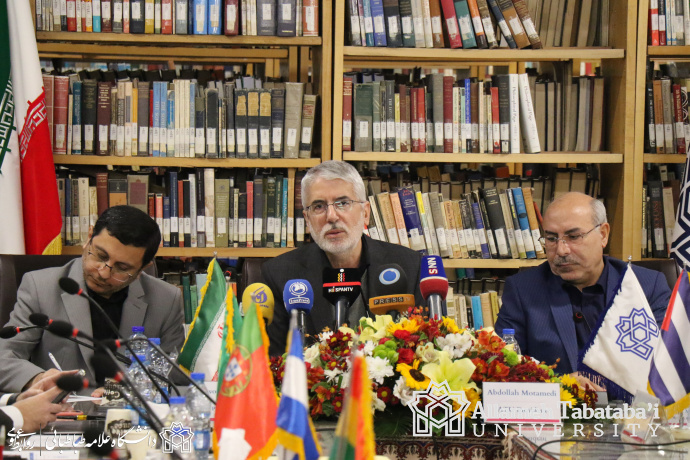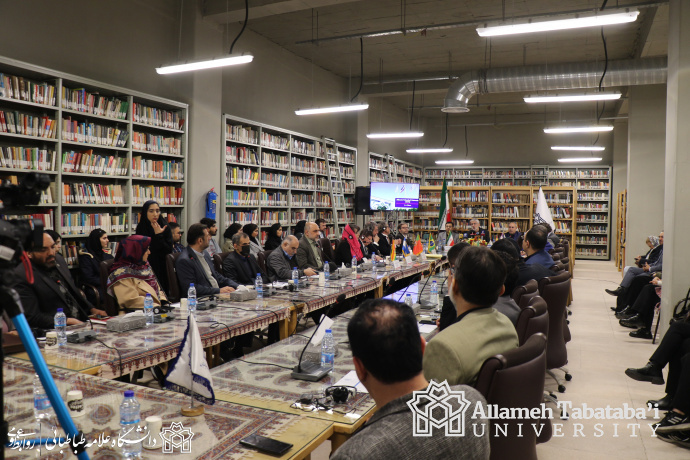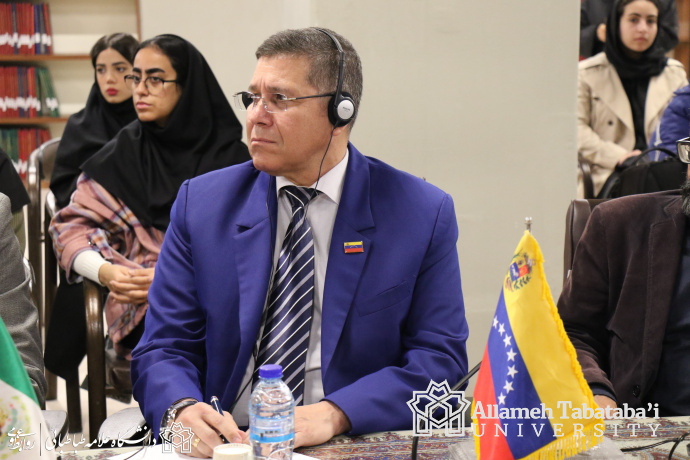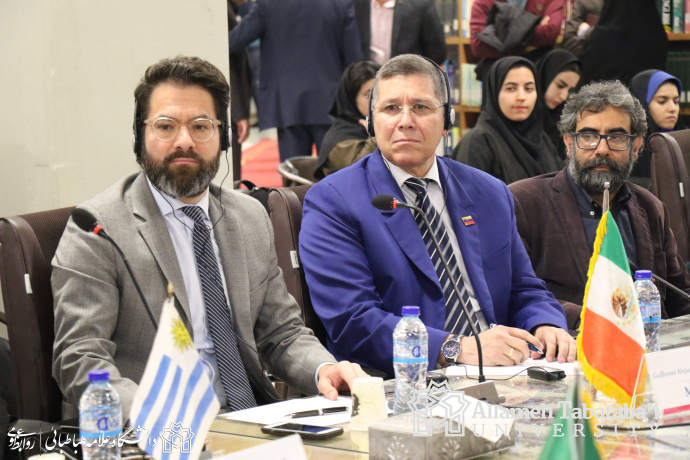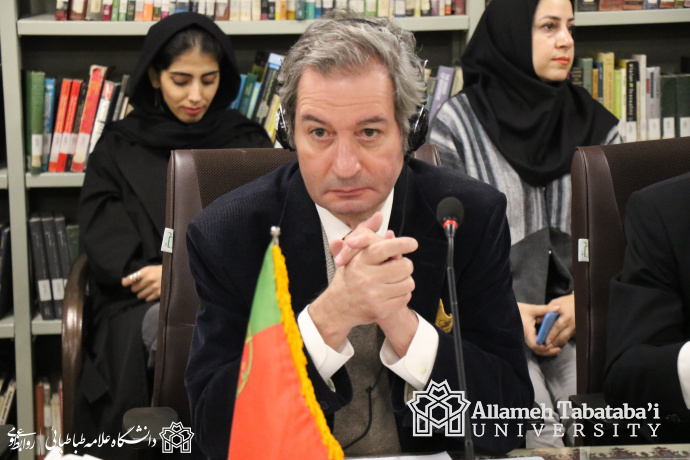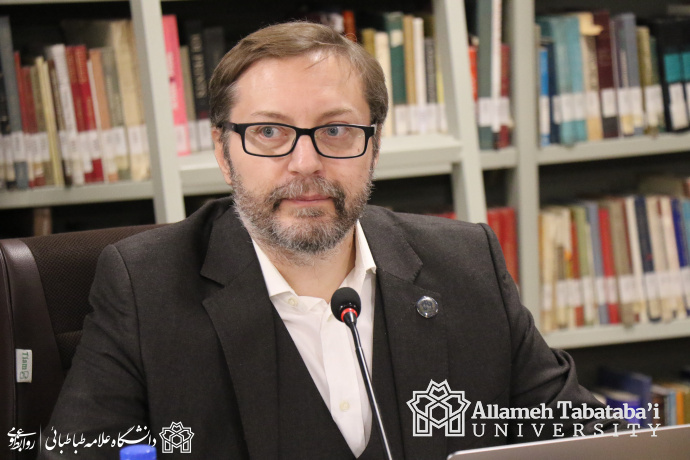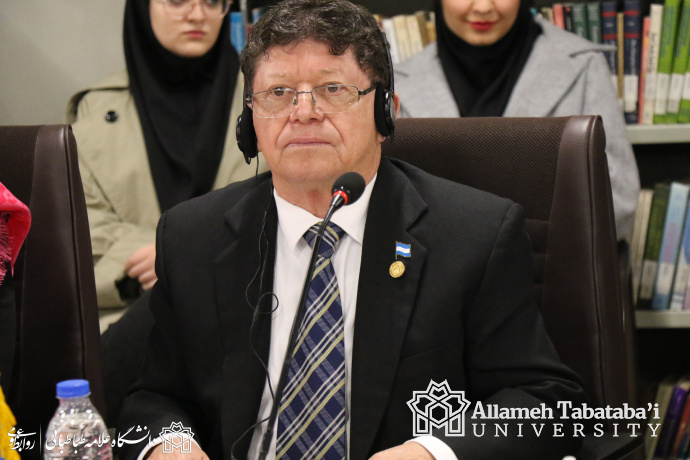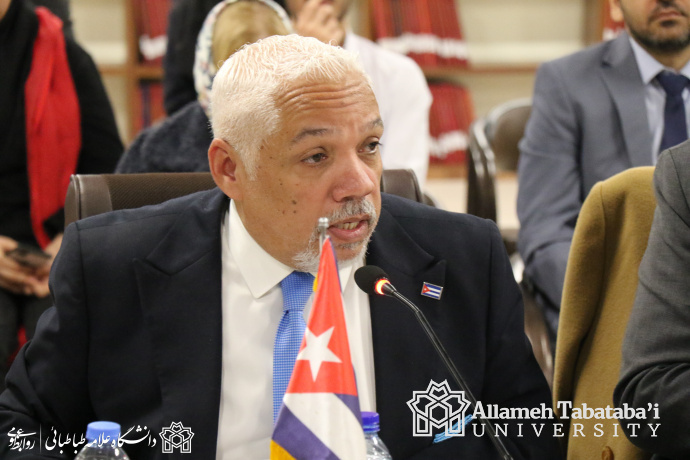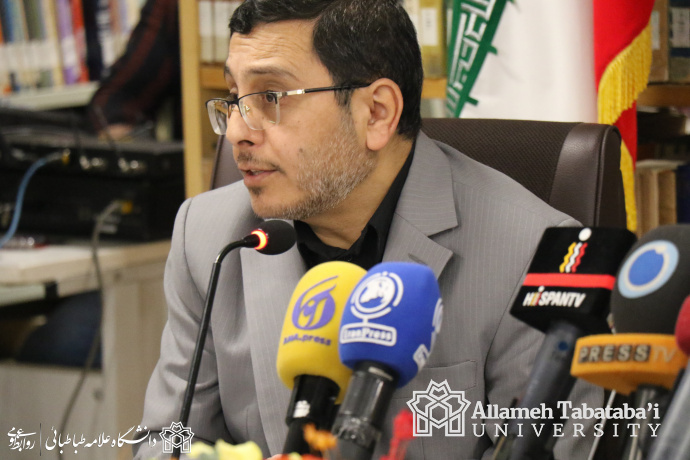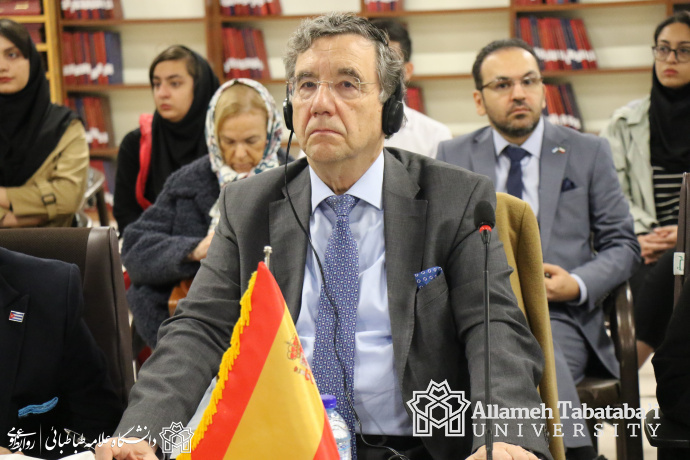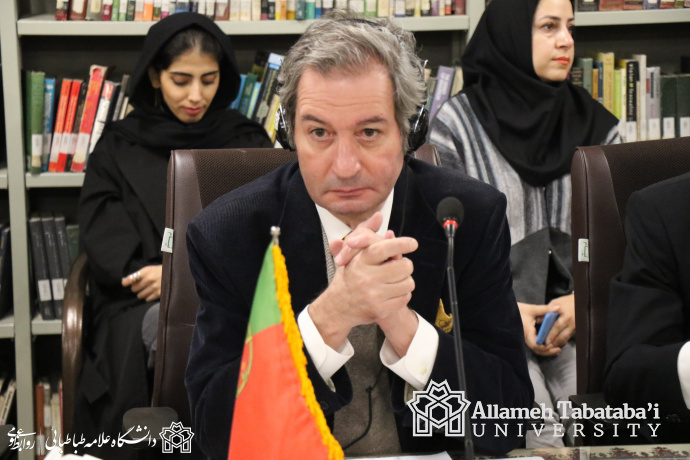Allameh Tabataba'i University hosts ambassadors from nine Ibero-American countries
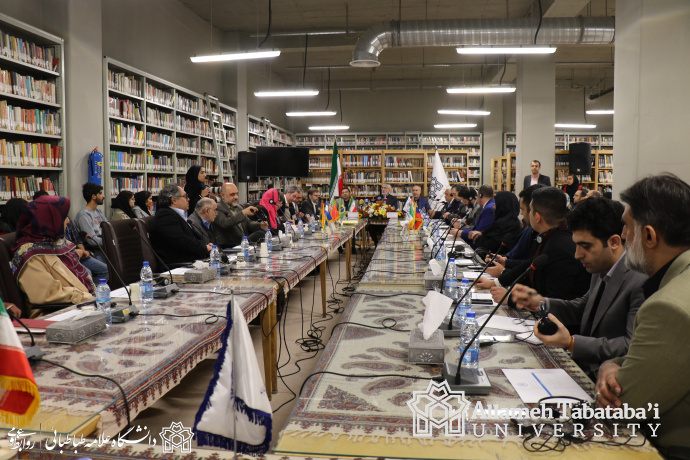
Report by the Directorate for International Academic Cooperation–
On 13 December 2023, Allameh Tabataba'i University (ATU) organised a meeting to enhance its international cooperation with Ibero-American countries. Apart from the President and other officials from ATU, the meeting was attended by ambassadors from Cuba, Brazil, Spain, Nicaragua, Uruguay, Bolivia, Mexico, Venezuela, and Portugal.
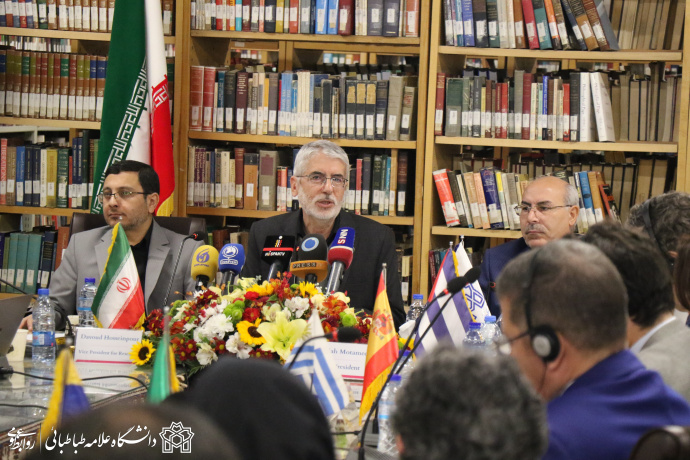
Dr Abdollah Motamedi, ATU President, commenced the meeting by stating, "Iran has clear and precise policies for developing international partnerships with other countries. Iran's extensive relations with Latin American, European, and Asian countries are growing, emphasizing respect for the rights of others." He highlighted that scientific diplomacy strengthens international political communication and the sharing of scientific capacities, thereby expanding the scientific space in partner countries.
Highlighting the university's unique capacity, Dr Motamedi pointed out that Allameh Tabataba'i University ranks among the top universities in the country and leads in certain indicators in the ISC ranking system. Additionally, the university achieved global recognition this year, being listed among the top universities in the world by the Times Higher Education Ranking System.
Addressing the ambassadors from nine Ibero-American countries, the ATU President expressed hope that their presence would lay the groundwork for communication and collaboration with universities in their respective countries, fostering scientific exchanges, student exchange programs, and joint research efforts.
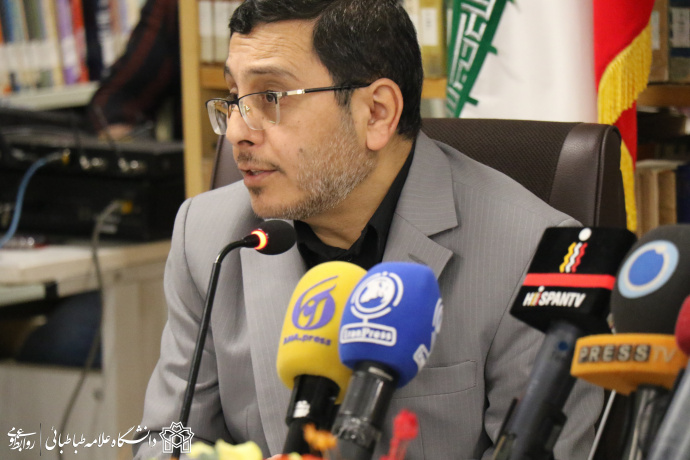
In the next part of the event, the representative from the Ministry of Science, Research, and Technology (MSRT) affirmed the ministry's commitment to increasing the number of international students from all countries in Iran. He continued, "The MSRT is prepared to offer scholarships to students from Spanish-speaking countries. Additionally, we encourage the countries' ministries to join us in providing scholarships to Iranian students."
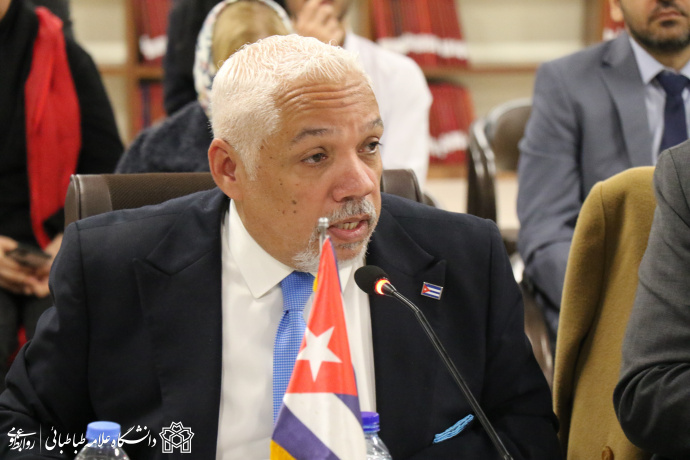
Alberto González Casals, Cuba's Ambassador to Iran, then expressed his satisfaction with the opportunity for his presence in a prestigious Iranian university, highlighting the signature of an MoU with the Ministry of Science in Cuba. He emphasized the need for enhanced international communication and suggested virtual joint workshops between Cuban and Iranian universities to leverage mutual scientific capabilities. Casals also proposed the establishment of Iranian colleges in Cuba and the creation of Latin American knowledge centres at ATU for scientific and cultural exchanges.
In response, the ATU President proposed the establishment of a Persian language teaching chair in Cuba and the offering of scholarships to Cuban students to learn Persian. He also mentioned the Centre for Teaching Persian to Speakers of Other Languages (AZFA) at ATU to provide virtual Persian language courses for six months.
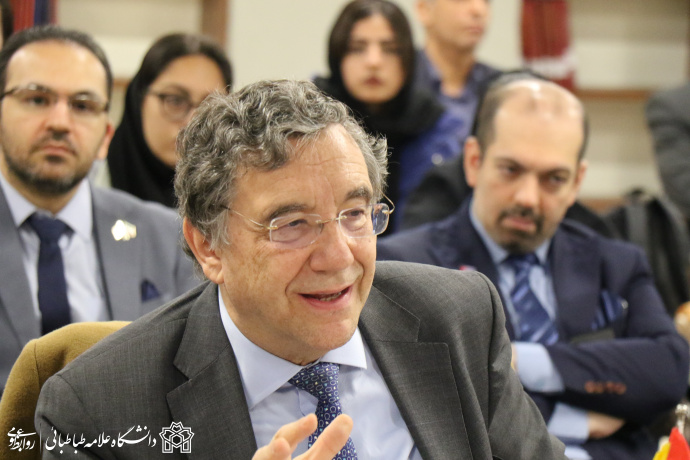
Subsequently, Angel Losada Fernandez, the Spanish ambassador to Tehran, emphasized the need to assist Iran's Ministry of Foreign Affairs in overcoming obstacles to academic exchanges. He suggested that the establishment of various institutions and Spanish educational centres could strengthen the relations between Spain and Iran. Fernandez highlighted the global interest in learning Spanish and stressed the importance of providing the necessary infrastructure for teaching the language to effectively introduce Spanish culture and civilisation to interested individuals in Iran. He assured that the Spanish Embassy is ready to collaborate with Iranian universities in cultural and educational sectors despite challenges like sanctions, limited direct flights, and visa issuance.
The Mexican ambassador's representative emphasized the importance of expanding cultural relations and proposed increasing scientific exchanges with Iran. He added that the embassy offers several scholarships through the scientific council. He expressed the Mexican government's interest in providing more scholarships to Iranian students, while also reminding that there is a need to attract more Mexican students to Iran.
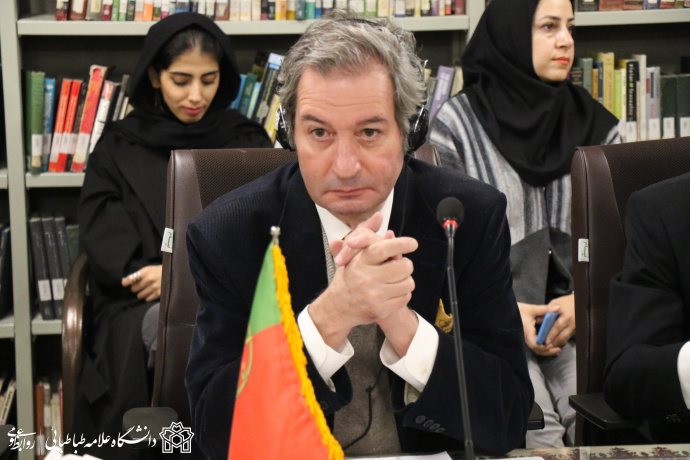
Then, the Portuguese Ambassador to Iran, Carlos Costa Neves, highlighted the efforts since 2015 to strengthen relations with Iran through language training, aiming to popularise Portuguese language teaching in Iran. He noted the significance of Portuguese as the language spoken by the President of the United Nations and expressed optimism about the potential for positive outcomes from their plans.
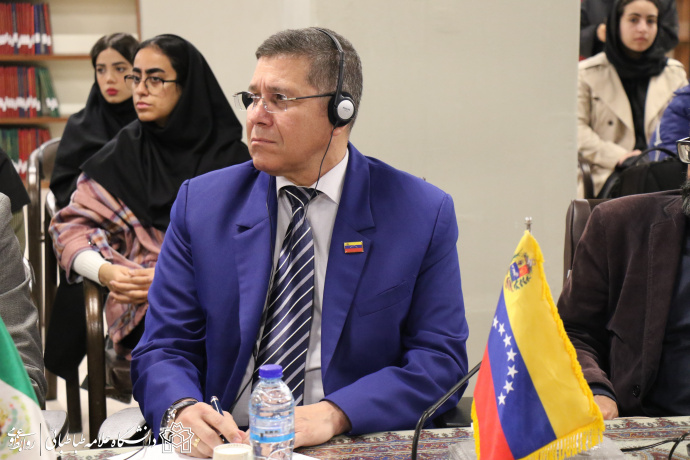
At the end of the session, Venezuela's Ambassador to Iran, Jose Rafael Silva Aponte, stressed the need to enhance academic relations between the two countries. He expressed a desire to establish direct communication with the Ministry of Science and Iranian universities to further their academic ties, emphasizing the responsibility to take more proactive steps in this area.
The meeting was held at ATU's Central Library and Documentation Centre and several students, officials, professors, and national news reporters attended the event.



